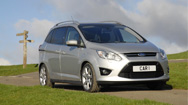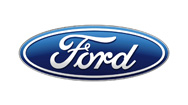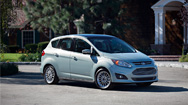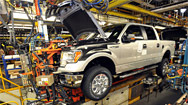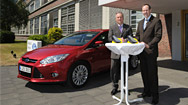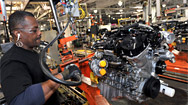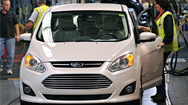Ford’s Climate Change Strategy
To respond to the risks and opportunities posed by the climate change issue, our long-term strategy is to contribute to climate stabilization by:
- Continuously reducing the greenhouse gas (GHG) emissions and energy usage of our operations
- Developing the flexibility and capability to market lower-GHG-emission products, in line with evolving market conditions
- Working with industry partners, energy companies, consumer groups and policy makers to establish an effective and predictable market, policy and technological framework for reducing GHG emissions
Our product plans in all regions are aligned with our overall goal of contributing to climate stabilization. Our technology and product strategy to meet this goal is based on the modeling of vehicle and fuel contributions to emission reductions and an analysis of market and regulatory trends (see figure below). Our climate change strategy is supported by our sustainable mobility governance, which establishes structures and accountability for implementing the strategy.
Product Sustainability Process
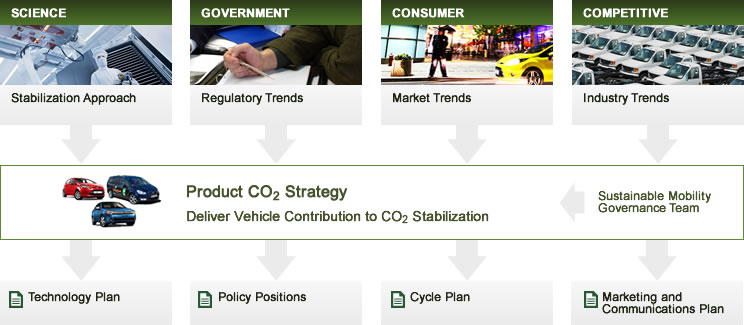
The specifics of our vehicle technology and product strategy to meet this goal are laid out in the Sustainable Technologies and Alternative Fuels Plan, which can be found in the Greening Our Products section of this report. The plan details steps we are taking in the foreseeable future to develop and deploy vehicle and fuel technologies.
We believe this strategy is already showing results by positioning our Company to take advantage of opportunities created by shifts in markets. We have implemented all of the near-term actions of our plan, and our commitment to outstanding fuel economy aligns well with consumer interest in fuel-sipping vehicles. In 2012, for example, small cars showed the largest market-share increase of any vehicle segment across the industry, posting a 23 percent increase compared with overall industry expansion of just 13 percent. Ford’s sales of small cars were up 29 percent in 2012, giving us just over 10 percent of the small-car segment, more than a full percentage point increase compared to 2010, and our best share of the U.S. small-car segment since 2003. The Ford Focus was the best-selling car, worldwide, in 2012.
For the longer term, we are preparing to provide regionally appropriate approaches based on global platforms and advanced vehicle technologies, including electric vehicles, biofuel vehicles and (as fuel and infrastructure become available) hydrogen fuel cell vehicles. In addition, we have conducted dialogues with stakeholders, exploring sustainable mobility projects to demonstrate mobility solutions that meet the needs of urban and rural communities by leveraging information technology to integrate private and public transportation options. Please see the Financial Health section for details on these efforts.

